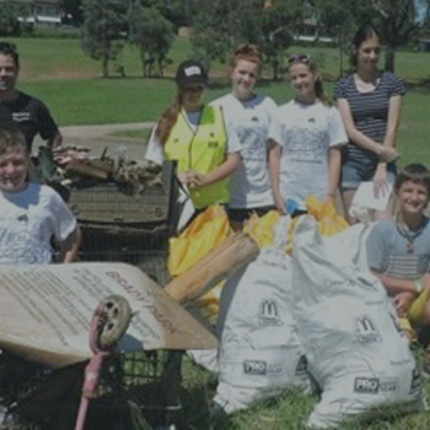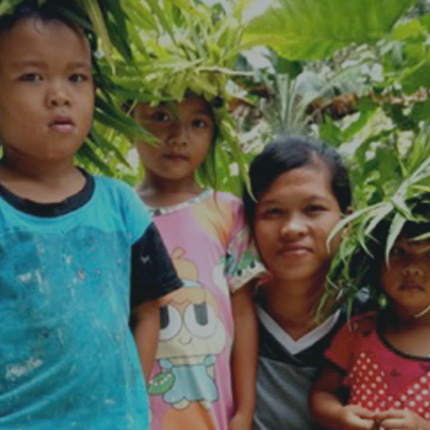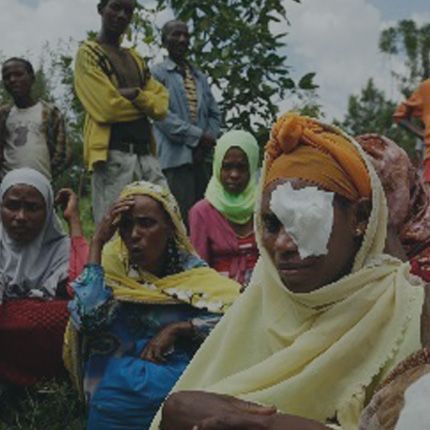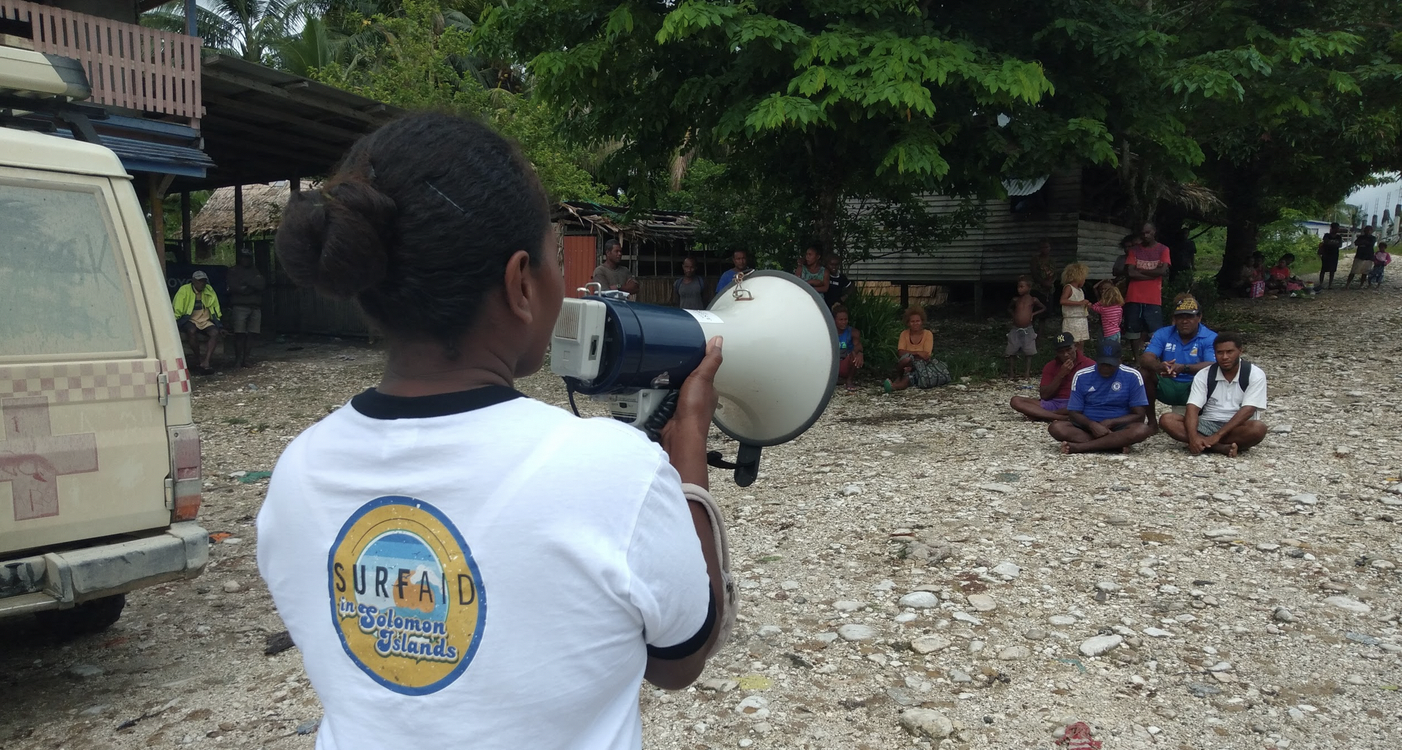About this Project
This project will work directly with communities in Malaita and Western Province, training community members as peer educators to increase community engagement and education on key messages.
Learn more about The Footprints NetworkProject background
Cervical cancer is one of the most preventable and treatable forms of cancer if it is detected early. Despite this, cervical cancer is the second most frequent cancer in women in Solomon Islands. Solomon Islands has one of the highest rates of cervical cancer incidence and mortality in the Pacific region. Cervical cancer can be prevented with regular screening. VIA screening (Visual Inspection using Acetic acid) can detect precancerous changes and is available for women aged 25-49 years. Pre-cancer treatment is available through the cervical cancer screening project of the Ministry of Health and Medical Services and Family Planning Australia. As this is a new service and treatment, information needs to reach the target audiences to ensure uptake of the service. SurfAid has joined the cervical cancer screening project to ensure health information is reaching the women in the target group and the household decision makers. There are a number of barriers between women and potentially life-saving screenings and treatments. Some of these barriers are the lack of knowledge about cervical cancer and misunderstandings about screening and treatment. Some misconceptions by women (aged 25-49), their partners and families include:
- Cervical cancer is caused by "dirty sex"/promiscuity.
- Health services for cancer are only available in Honiara.
- Cervical cancer check will take valuable resources; time to travel very far, money for transport.
- "As my wife is faithful, she cannot have cervical cancer".
- "It is not good to have my wife checked 'down below'".

Project activities and results
This project worked directly with communities in Malaita, training health volunteers from Solomon Islands Planned Parenthood Association (SIPPA) as peer educators to increase community engagement and education on key messages and creative media produced to support women to increase the uptake of cervical cancer screening. It is important that suggested behaviour change is framed as compelling, simple and desirable, to ensure the behaviour is taken up by the communities. Since literacy levels are fairly low in many of the target areas, the project utilised a mix of different media to increase accessibility and appeal, and therefore effectiveness. SurfAid worked with communities and health volunteers to develop locally-appropriate information, education and communication (IEC) materials, designed to increase community engagement and knowledge about the importance of cervical cancer screening and treatment. These materials included:
- Posters in English and Pidgin. One specifically for women, and one for men to support the women.
- A song on the topic and a music video to promote men to support the women in their lives to have the check: View YouTube video.
- A short drama filmed in Pidgin, representing the key messages: View YouTube video.
To make the message compelling, materials are produced locally, and in Pidgin, showing culturally relevant and recognisable situations, and visuals, with people that the target audience can relate to. The messages are short and simple, cognitive of the fact that “less is more” to stimulate behaviour change. It summarises complex information in a short call to action. We delivered information sessions on cervical cancer screening to health promotion staff, and we supported the Health Promotion Team and SIPPA volunteers to reach communities in the areas where the cervical cancer screening service is available. The education sessions were held in face to face sessions with nurses during their clinics, informally in markets, and in community health centres. As a result the project reached approximately 30,000 people in areas where cervical screening is available.

Project spending
The $20,000 raised through the Footprints Network was utilised as follows:
- Development of a community-led educational video on cervical cancer, tailored to local cultural context. This included: workshop with health promotion staff, SIPPA volunteers for script development, rehearsal, renting equipment and producing the video, workshop with women’s representatives in Malaita for feedback on the developed materials.
- Development of posters tailored to local cultural context on key messages on cervical cancer, cervical cancer screening and what to do after treatment. This included: workshop with health promotion staff, SIPPA volunteers, workshop with key community members to get feedback, graphic design and printing.
- Development of a song tailored to a local cultural context on key messages on the dangers of cervical cancer and how husbands can support their wives to go for early check and early treatment. This included sessions with SIPPA volunteers on lyrics, rehearsal, renting equipment and producing the song and music video.
- Outreach to communities with the Malaita health promotion team and SIPPA team, including printing, transport and meetings costs.

Partners and community involvement
SurfAid works through and supports local structures, to ensure alignment with priority needs and increase sustainability through longer-term support from communities and relevant government departments. In line with this, this project addressed urgent health needs in support of Solomon Islands Government programs and priorities, especially those of the Ministry of Health and Medical Services (MHMS). SurfAid worked in partnership with Family Planning Australia (FPA) to deliver this project, with FPA building the capacity of local health staff to implement clinical screening and treatment services; and SurfAid building the capacity of peer educators and developing educational materials.
Part of a larger strategy
This project is helping expand SurfAid’s work to reach remote communities in the Pacific, addressing urgent health needs in support of Solomon Islands Government programs and priorities. SurfAid’s partner for this project – Family Planning Australia’s cervical cancer screening and treatment program is implemented throughout Solomon Islands and across the Pacific. Introducing SurfAid’s strengths in community engagement and education is seen as key to increasing the reach and impact of this life-saving program. This project links to SurfAid’s broader community-led health programs in remote Indonesian communities. Lessons learned from SurfAid’s Indonesian programs, translated to Solomon Islands context, helped to improve implementation; whilst lessons learned through this Solomon Islands project will also be used to hone our model and approach across multiple contexts. Currently in its first year, this project is part of SurfAid’s preparation for potential scale-up to broader women’s and children’s health program activities in Solomons, in line with community needs and capacity, and government priorities.
Planning your next trip?
You can make a difference with a micro donation every time you purchase travel insurance.
Get a quoteFind out more about the current projects you can support with a donation.

Save the Children Australia
Educate disadvantaged youth communities in Australia

Surfaid
Educate displaced fisher folk to fight malnutrition in Indonesia

The Fred Hollows Foundation
Eliminate Avoidable Blindness in Ethiopia
